EU Monitor -Only 64 days left – register today for EAHP2020
The EAHP EU Monitor is a regular round up of news relevant to hospital pharmacy in Europe.
You can subscribe to receive the EAHP EU Monitor by email HERE.
25th EAHP Congress – looking at the future of patient care
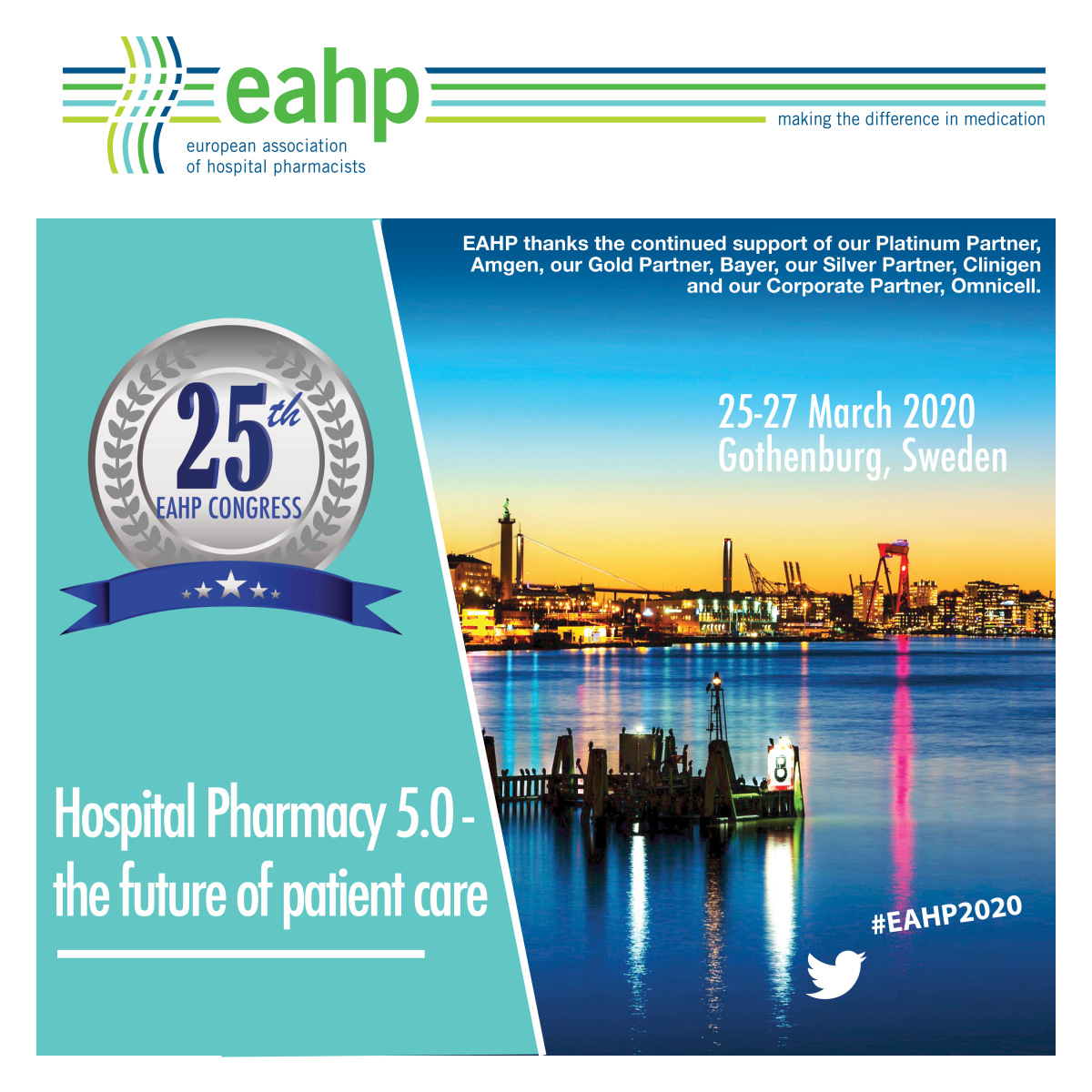
The anniversary congress of the European Association of Hospital Pharmacists (EAHP) is fast approaching. From 25th to 27thMarch 2020, EAHP will be hosting the 25th edition of its annual congress in Gothenburg, Sweden. Participants interested in benefiting from the reduced participation fee should make sure to register by the end of the month.
EAHP’s Scientific Committee has put together an interesting educational programme centred around the future of the profession. Keynotes, seminars and workshops will explore "Hospital Pharmacy 5.0 – the future of patient care". Like every year, the congress programme will also feature Synergy Satellite events which are in 2020 looking at recent and innovative developments in the field of biosimilars and antithrombotic stewardship.
“Oncology biosimilars – Hospital pharmacists making the difference” (sponsored by an educational grant from Amgen) will explore the potential of these treatment options for cancer patients. In particular, the use and monitoring of biosimilars and the financial impact of these solutions on healthcare systems will be discussed. After attending this session, participants will be able to provide a pharmacoeconomic view and to exchange with other healthcare professionals on specific issues relating to the optimum uses of oncology biosimilars in the hospital area.
Strategies for hospital pharmacists that help with the optimisation of anticoagulation use by appropriately modifying the reversible factors for bleeding will be showcased in the Synergy session “The Hospital Pharmacist’s role in antithrombotic stewardship” (sponsored by an educational grant from Bayer). Learning objectives will include being able to reduce the risk of complications in patients receiving Direct Oral Anticoagulants and to share information on the benefits of establishing an antithrombotic stewardship programme.
Questions linked to the misconceptions about biosimilars and the extrapolation of data will be addressed in the Synergy Symposium “Biosimilars in colorectal cancer - what's your gut feeling” (sponsored by an educational grant from Pfizer). To respond better to these questions, participants will acquire new understanding of the key facts which support biosimilar approval in the EU as applied to colorectal cancer therapy. In addition, they will be equipped with information that helps them to provide advice on the implementation of biosimilars of monoclonal antibodies used in colorectal cancer.
Online registration for EAHP’s Congress will close five days prior to the event. Onsite registration is possible. Participants that want to make use of the reduced rate need to register by 31st January 2020.
Register HERE
Access the programme HERE
EMA’s views on big data
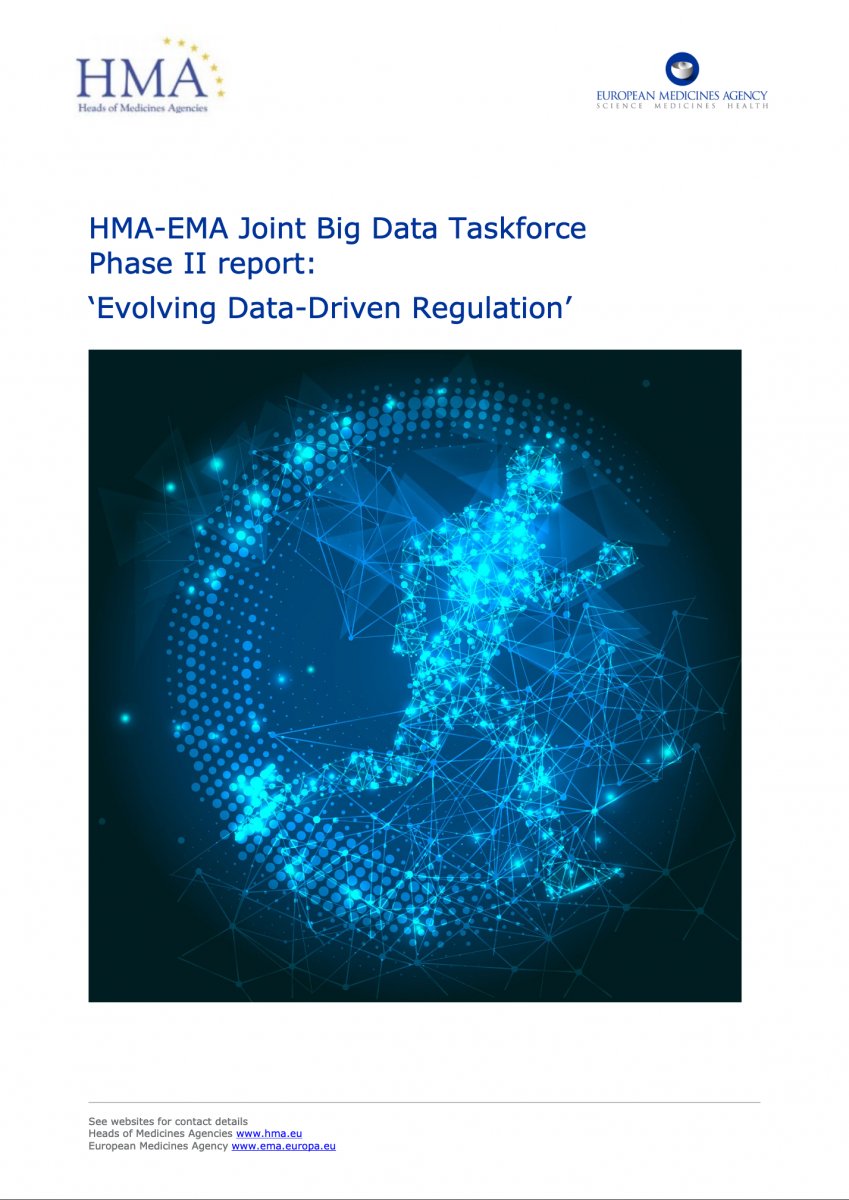
The joint task force of the European Medicines Agency (EMA) and the Heads of Medicines Agencies (HMA) on Big Data has moved to phase two and released a recommendations for the European medicines regulatory network. Their work tries to shed light on the changing data landscape which requires regulators to look at new mechanism for accessing, managing and analysing data.
In the first phase the group looked at the landscape of Big Data and identified opportunities which included for example filling knowledge gaps. The report “Evolving Data-Driven Regulation” provides further insights on some of the concepts identified in phase one. These observations are linked to specific recommendations that seek to further advance the way in which Big Data is used in Europe and feed into EMA’s Regulatory Science Strategy to 2025.
The recommendations are threefold. Some will be implemented though collaboration with stakeholders while others will be addressed via actions of the European medicines regulatory network or specific committees and working parties of EMA. The ten key priorities of the report include:
1) Delivering a sustainable platform to access and analyse healthcare data from across the EU (Data Analysis and Real World Interrogation Network -DARWIN)
2) Establishing an EU framework for data quality and representativeness
3) Enabling data discoverability.
4) Developing EU network skills in Big Data
5) Strengthening EU network processes for Big Data submissions
6) Building EU network capability to analyse Big Data
7) Modernising the delivery of expert advice
8) Ensuring data are managed and analysed within a secure and ethical governance framework
9) Collaborating with international initiatives on Big Data
10) Creating an EU Big Data ‘stakeholder implementation forum’
Read the report HERE
WHO raises concerns about lack of new antibiotics
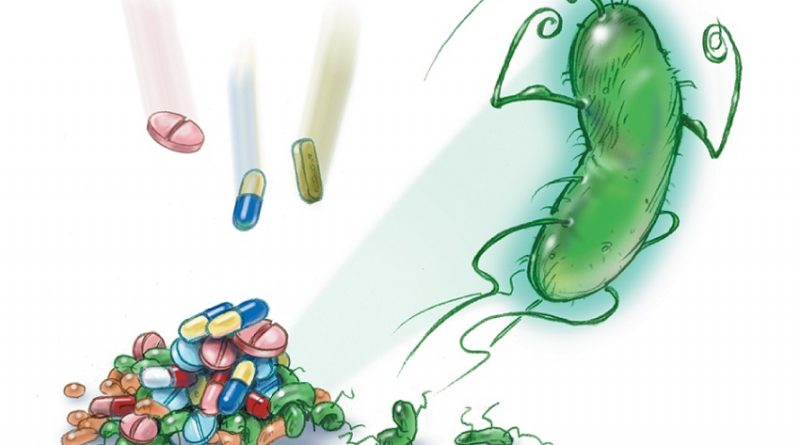
In mid-January, the World Health Organisation (WHO) published two reports analysing the current development of new antimicrobial agents. In relation to the clinical pipeline one of the reports highlighted insufficiencies in tackling the challenge of increasing emergence and spread of antimicrobial resistance. The second report acknowledges that the pre-clinical pipeline is looking better, but underlined that it will still take years before these developments will reach patients.
The publication on ‘Antibacterial agents in preclinical development’ outlined the diversity of the pipeline, with more than 250 antimicrobial agents seeking to target pathogens on the priority list. However, despite these positive advancements WHO also noted that these are still in a very early stage, meaning that effectiveness and safety still needs to be proven. In relation to the 50 antibiotics that are currently in the clinical phase, it was pointed out that these products are going to bring little benefit over existing treatments and that only half of these are going to be effective against WHO’s priority pathogens. The report on “Antibacterial agents in clinical development – an analysis of the antibacterial clinical development pipeline” also brought forward evidence showing a worrying gap in activity against the highly resistant NDM-1 (New Delhi metallo-beta-lactamase 1). Out of the 50 products in the pipeline only 3 are seeking to target NDM-1.
Read the report on Antibacterial Agents in Preclinical Development HERE
Read the report on Antibacterial Agents in Clinical Development HERE
EJHP: Changing the medication documentation process for discharge: impact on clinical routine and documentation quality
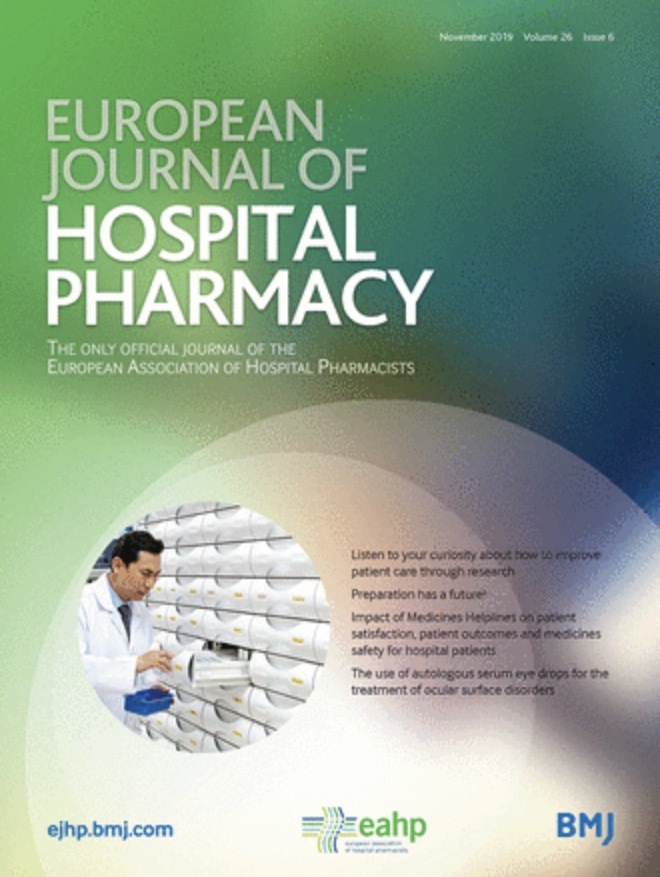
The latest original article published in the online first edition of the European Journal of Hospital Pharmacy (EJHP) evaluates the change of the medication documentation process for discharge after the introduction of a new law in Germany. The review concluded that the changes to the best-practice process led to a higher quality in medication documentation at the cost of a higher workload for physicians, potentially limiting time for other care tasks. In light of these findings, the authors of the analysis suggest to define areas of the medication documentation process in which physicians could be supported by other professionals.
Read the article HERE
Measure your compliance with the European Statements of Hospital Pharmacy
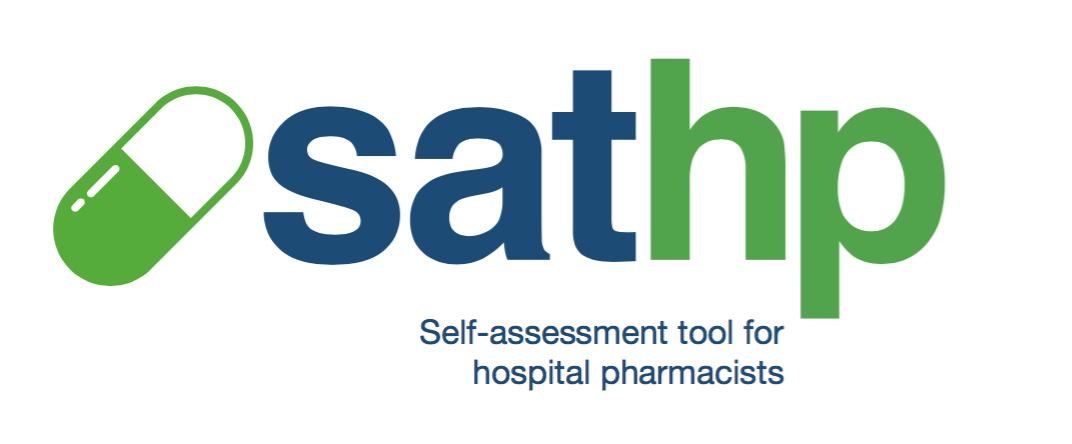
Have you ever asked yourself how many sections of the European Statements of Hospital Pharmacy have been implemented by your hospital pharmacy? EAHP’s self-assessment tool can help you find the answer to that question. The tool allows you to assess the level of implementation of the Statements within your hospital. A tailor-made action plan will help you with addressing areas that need improvement. The tool can be accessed via the SAT website and is available in 13 different language versions (Czech, English, French, German, Greek, Hungarian, Italian, Polish, Portuguese, Romanian, Serbo-Croatian, Spanish and Turkish).




